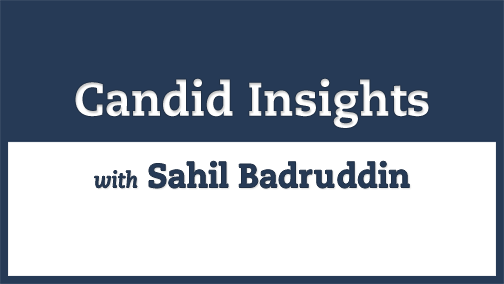Daisy Khan on Women’s Rights, Sharia, and Extremism
EDITORS’ NOTE: Daisy Khan — Executive Director of the Women’s Islamic Initiative for Spirituality and Equality and previously listed among TIME magazine’s ‘100 Most Influential People’ — discusses her insights on misunderstandings of Sharia, Polarization, Extremism, Women’s Rights, and her vision for the future.
Interview Questions
Misunderstandings of Sharia Law — Time Index: 0:49 (Based on the Audio)
1. To start, you’ve done extensive work on Sharia, which is often loosely defined as Islamic Law, and how Sharia has been misunderstood in the social, legal, and political context of America, could you help us understand the background and the current state of the situation?
Understanding Islam — Time Index: 5:52
2. Now what can we do to provide people in positions of powers to help them better understand Islam in general?
The Wise Up Report — Time Index: 8:58
3. The Wise Up report was produced with the help of 72 academics, scholars, imams, and activists. You mentioned it took over two years and it’s this evidence-based report that clarifies the differences between Islamic theology and extremist theology and the best practices for preventing, you know, recruitment and hate crimes against Muslims. There are about 100 mosques and 50 interfaith centers, which have already signed up for the report. What are your future hopes for it?
Polarization in America — Time Index: 13:00
4. Speaking particularly of the world today, and even the more distant future, you’ve expressed that polarization and extremism is another top challenge for America.
Could you speak about some of the root causes? Of course, we can’t generalize completely but are there common causes of it today?
Muslim to Muslim Relationships — Time Index: 19:48
5. After finding yourself at the center of a national debate surrounding the Ground Zero controversy with Imam Faisal Abdul Rauf, you became executive director of the American Society for Muslim Advancement, where you spent eighteen years creating groundbreaking intra- and interfaith programs based on cultural and religious harmony and interfaith collaboration. Speaking specifically about intra-Muslim, Muslim-to-Muslim relationships, in these times, how can Muslims better support each other?
Cordoba Initiative — Time Index: 25:13
6. What has come of the work of the Cordoba Initiative since the Ground Zero controversy?
Women’s Rights and WISE — Time Index: 26:29
7. I want a talk a little bit about WISE — Women’s Islamic Initiative for Spirituality and Equality. WISE initiated the creation of the first global women’s shura or (advisory) council, which advances women’s rights through scriptural interpretation. Could you speak a little about the council and its work?
Opportunity for Muslim Women — Time Index: 31:27
8. In your memoir, Born with Wings, you describe your journey of self-actualization and your success in opening doors for other Muslim women and building bridges between cultures. What opportunities do you think women have to make a difference?
Political Situation in Kashmir — Time Index: 33:30
9. I believe you grew up in Kashmir, what do you make of the past and current political situation there?
Vision for the Future — Time Index: 35:48
10. We need to think about a vision for the future but we end up talking about these in general terms, but could you name a specific objective, perhaps, you see the world can achieve, let’s say in 25 years, and what insights and suggestions would you offer that might help achieve this vision?
Personal Journey — Time Index: 39:39
11. If I may ask, what would be a question, even a faith-related question, that you are still searching for a satisfying answer to and for which you would even welcome other perspectives on?
About Daisy Khan
Daisy Khan is an award-winning speaker, author, activist, commentator, and the founder of Women’s Islamic Initiative in Spirituality and Equality (WISE), the largest global network of Muslim women committed to peacebuilding, gender equality, and human dignity.
She has been involved in grassroots efforts combating anti-Muslim bias for over twenty years and is renowned as a thought leader on Muslim women’s rights, Islam in America. As an bridge builder she has been hailed for producing interfaith programs like Same Difference, the Cordoba Bread Fest and the “Today, I am a Muslim Too” rally.
Khan believes that women’s leadership is essential to solving societal issues. “we need to remove structural barriers to Muslim women’s leadership, to enable them to use their resolve, passion and humility to bring societies into greatness.” She founded the first global Muslim women’s Shura (advisory) Council to amplify Muslim women’s scholarship. The Council uses an egalitarian interpretation of scripture to publish position papers against issues such as child marriage, domestic violence, female genital mutilation and many others.
Khan published WISE Up in collaboration with 72 authors to create a counter-momentum to the rise in hateful rhetoric and violent extremism. Her memoir, Born with Wings, published in 2018 by Random House, depicts her spiritual journey as a modern Muslim woman and her circuitous path to leadership. Publishers Weekly gave the book a starred review.
Born in Kashmir, she spent twenty-five years as an interior architect for various Fortune 500 companies. In 2005, she dedicated herself to full-time community service and building movements for positive change, both in the United States and around the globe.


